Filter by

The realities and futures of work
What do we know about the current realities of work and its likely futures? What choices must we make and how will they affect those futures? Many books about the future of work start by talking about the latest technology, and focus on how technology is going to change the way we work. And there is no doubt that technology will have huge impacts. However, to really understand the direction in …
- Edition
- -
- ISBN/ISSN
- 9781760463113
- Collation
- xvi + 406 p
- Series Title
- -
- Call Number
- 331 PEE r
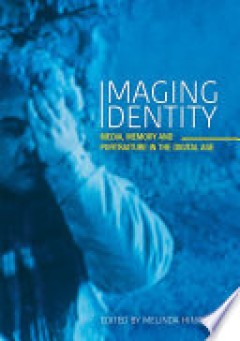
Imaging identity: media, memory and portraiture in the digital age
Imaging Identity presents potent reflections on the human condition through the prism of portraiture. Taking digital imaging technologies and the dynamic and precarious dimensions of contemporary identity as critical reference points, these essays consider why portraits continue to have such galvanising appeal and perform fundamental work across so many social settings. This multidisciplinary …
- Edition
- -
- ISBN/ISSN
- 9781760460419
- Collation
- xviii + 146 p
- Series Title
- -
- Call Number
- 757 HIN i

Goodna girls: a history of children in a Queensland Mental Asylum
Goodna Girls tells the story of children incarcerated in Wolston Park Hospital, an adult psychiatric facility in Queensland, Australia. It contains the personal testimonies of women who relate—in their own no-holds-barred style and often with irreverent humour—how they, as children, ended up in Wolston Park and how this affected their adult lives. The accounts of hospital staff who witnesse…
- Edition
- -
- ISBN/ISSN
- 9781760463915
- Collation
- xvi + 174 p
- Series Title
- Aboriginal History Monographs
- Call Number
- 362.709943 CHY g
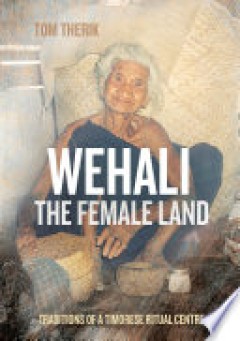
Wehali: The Female Land
Wehali defines itself as the ritual centre of the island of Timor. As a ritual centre, Wehali continues to be the residence of a figure of traditional authority on whom, in the 18th century, the Dutch conferred the title of Kaiser (Keizer) and to whom the Portuguese gave the title of Emperor (Imperador). At one time, Wehali was the centre of a network of tributary states, which both the Dutch a…
- Edition
- -
- ISBN/ISSN
- 9781760464851
- Collation
- -
- Series Title
- -
- Call Number
- 959.86
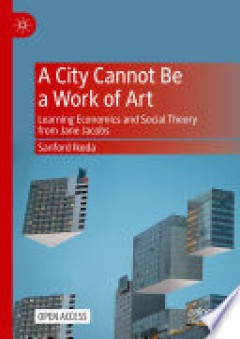
A city cannot be a work of art learning economics and social theory from jane…
This open access book connects Jane Jacobs's celebrated urban analysis to her ideas on economics and social theory. While Jacobs is a legend in the field of urbanism and famous for challenging and profoundly influencing urban planning and design, her theoretical contributions – although central to her criticisms of and proposals for public policy – are frequently overlooked even by her most…
- Edition
- -
- ISBN/ISSN
- 9789819953622
- Collation
- XXV, 400 p
- Series Title
- -
- Call Number
- 720.94 IKE a
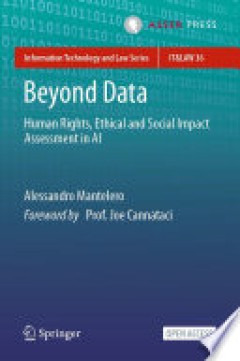
Beyond data : human rights, ethical and social impact assessment in AI
This open access book focuses on the impact of Artificial Intelligence (AI) on individuals and society from a legal perspective, providing a comprehensive risk-based methodological framework to address it. Building on the limitations of data protection in dealing with the challenges of AI, the author proposes an integrated approach to risk assessment that focuses on human rights and encompasses…
- Edition
- Ed. 1
- ISBN/ISSN
- 9789462655317
- Collation
- XXIII, 200
- Series Title
- -
- Call Number
- 343.0999 Man b

Latour for architects
Bruno Latour is one of the leading figures in Social Sciences today, but his contributions are also widely recognised in the arts. His theories ‘flourished’ in the 1980s in the aftermath of the structuralism wave and generated new concepts and methodologies for the understanding of the social. In the past decade, Latour and his Actor-Network Theory (ANT) have gained popularity among researc…
- Edition
- 1
- ISBN/ISSN
- 9780429328510
- Collation
- xiv + 141 p
- Series Title
- -
- Call Number
- 720.1 YAN l
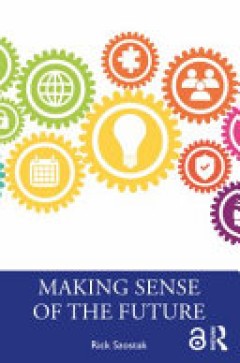
Making sense of the future
Making Sense of the Future integrates the latest thinking in Future Studies with the author’s expertise in world history, economics, interdisciplinary studies, knowledge organization, and political activism. The book takes a systems approach that recognizes the complexity of our world. It begins by suggesting a set of goals for human societies and identifying innovative strategies for achievi…
- Edition
- -
- ISBN/ISSN
- 9781003186854
- Collation
- xiv + 193 p
- Series Title
- -
- Call Number
- 303.49 RIC m
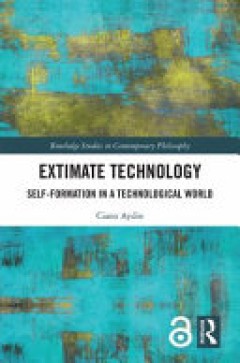
Extimate technology : self-formation in a technological world
This book investigates how we should form ourselves in a world saturated with technologies that are profoundly intruding in the very fabric of our selfhood. New and emerging technologies, such as smart technological environments, imaging technologies and smart drugs, are increasingly shaping who and what we are and influencing who we ought to be. How should we adequately understand, evaluate an…
- Edition
- -
- ISBN/ISSN
- 9781003139409
- Collation
- xii + 343 p
- Series Title
- -
- Call Number
- 303.48301 AYD e
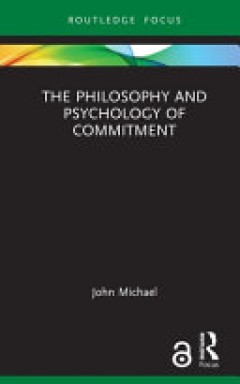
The philosophy and psychology of commitment
The phenomenon of commitment is a cornerstone of human social life. Commitments make individuals’ behavior predictable, thereby facilitating the planning and coordination of joint actions involving multiple agents. Moreover, commitments make people willing to rely upon each other, and thereby contribute to sustaining characteristically human social institutions such as jobs, money, government…
- Edition
- -
- ISBN/ISSN
- 9781315111308
- Collation
- viii + 101 p
- Series Title
- -
- Call Number
- 158 MIC p
 Computer Science, Information & General Works
Computer Science, Information & General Works  Philosophy & Psychology
Philosophy & Psychology  Religion
Religion  Social Sciences
Social Sciences  Language
Language  Pure Science
Pure Science  Applied Sciences
Applied Sciences  Art & Recreation
Art & Recreation  Literature
Literature  History & Geography
History & Geography